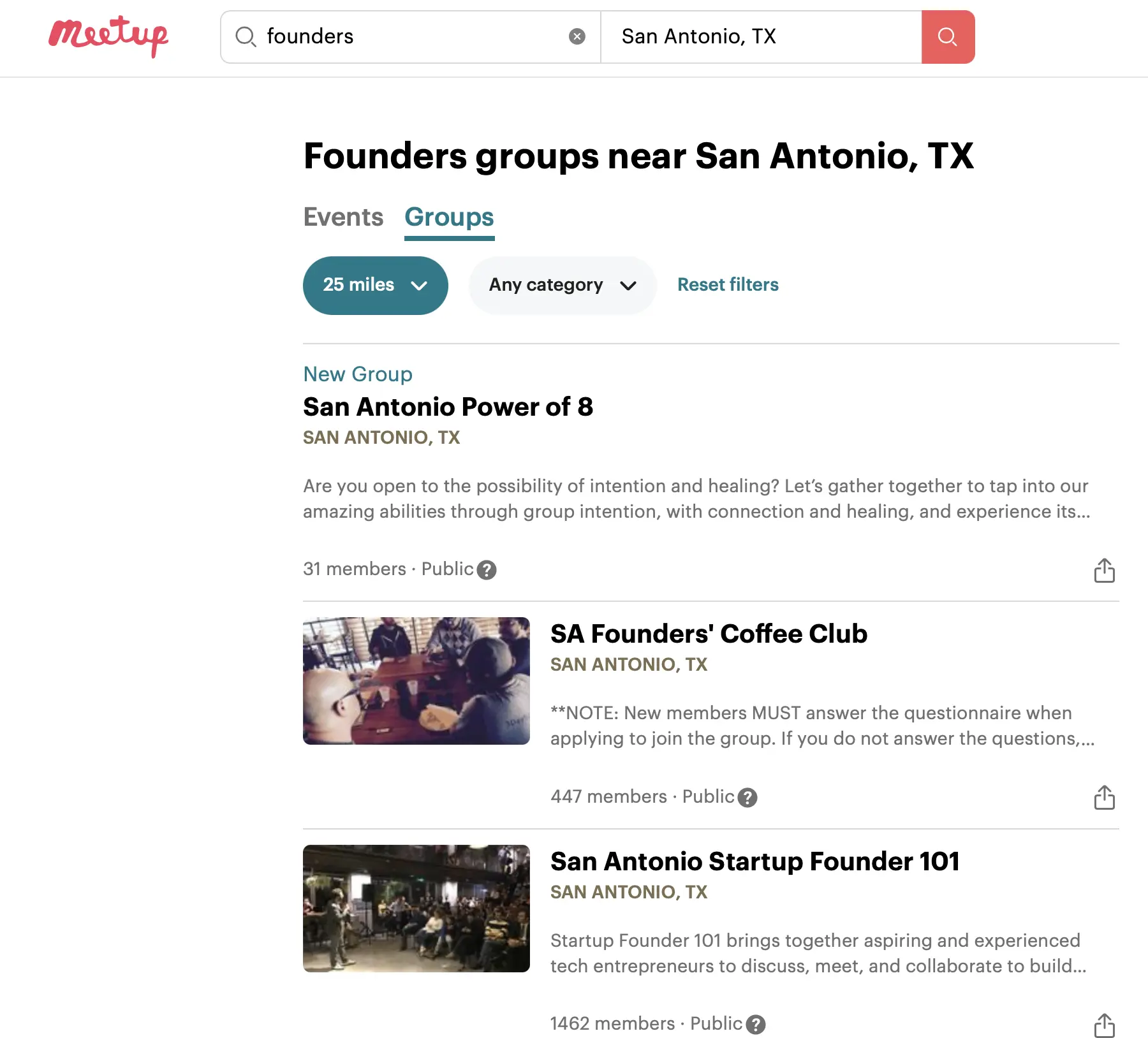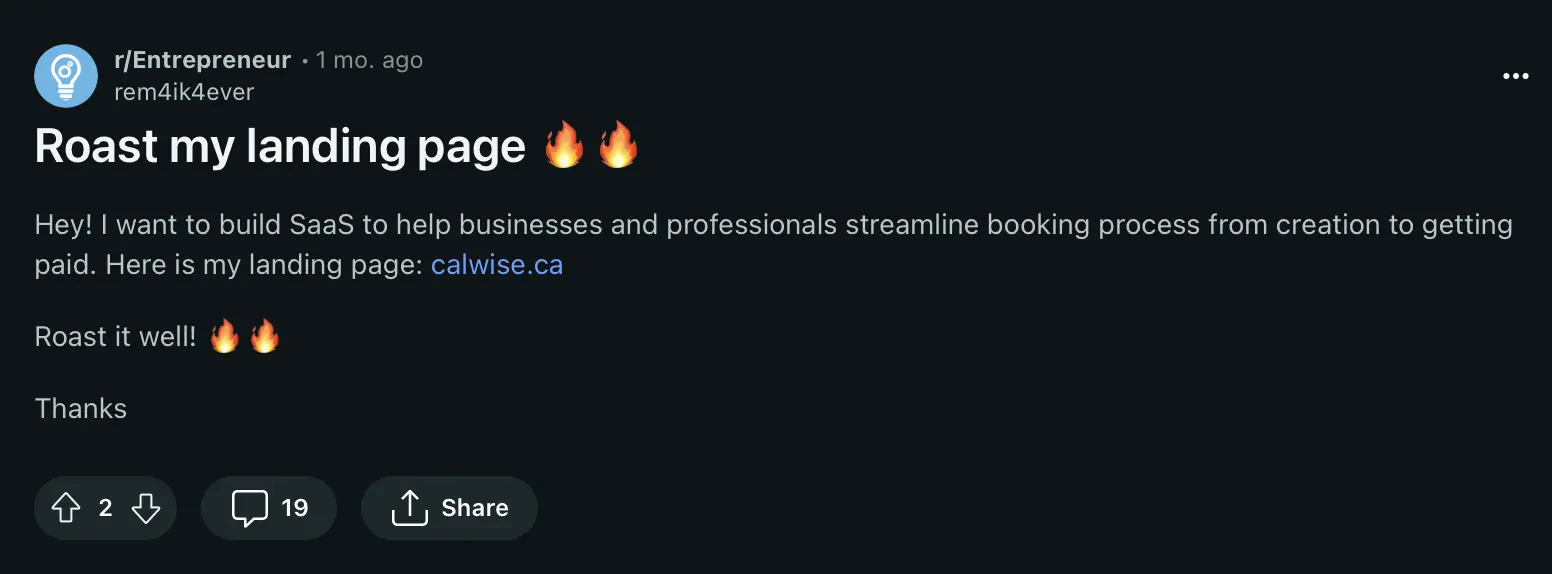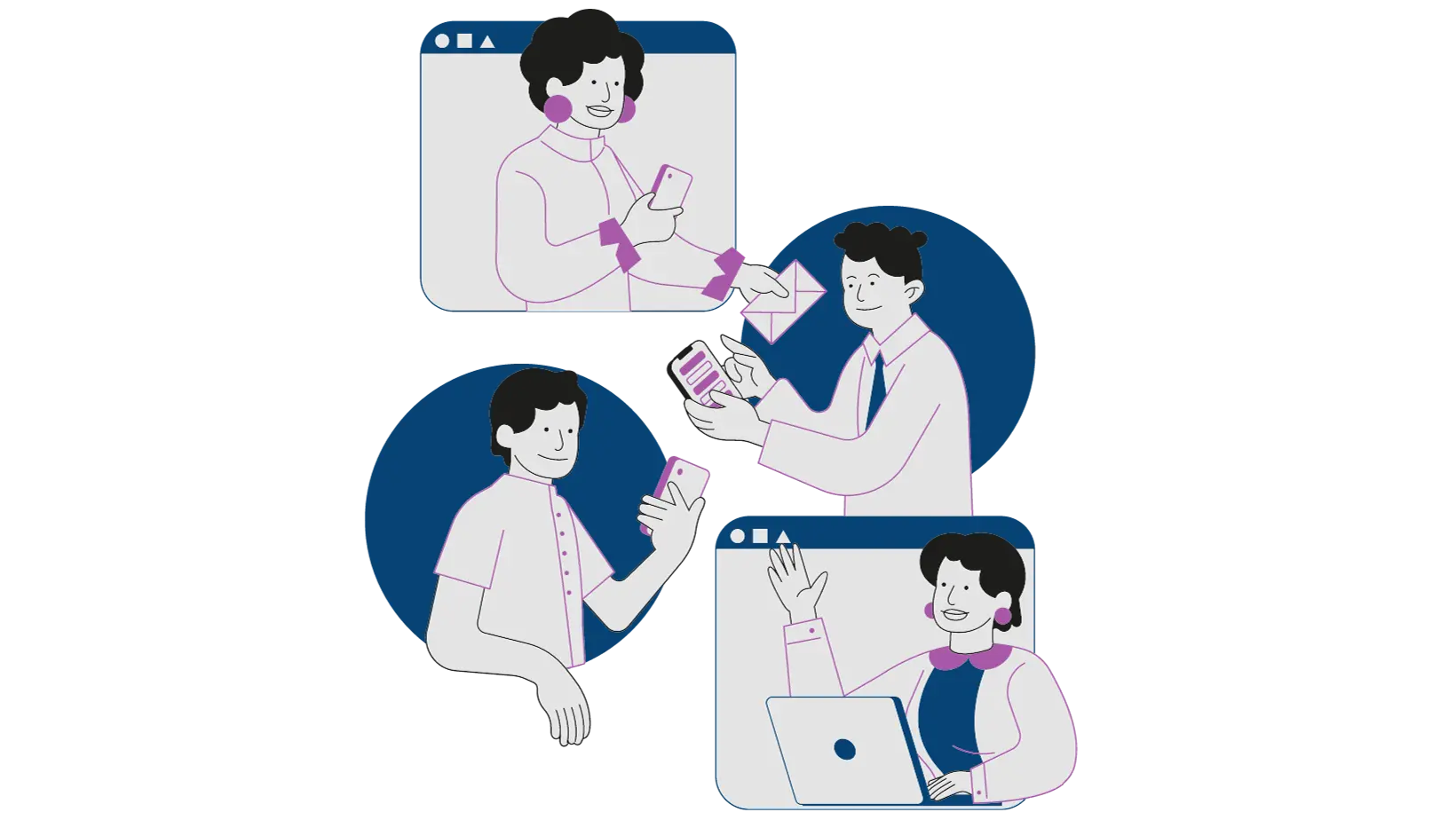Ok - so maybe you don’t have a fortune to spend on Facebook or Google Ads. Don’t worry. You can work with online communities to validate your next startup idea. The results could even pay dividends for years to come if you move forward with your business.
This isn’t just about validating signups. It’s about stimulating rich, relevant conversations and fostering engagement on a one-to-many level. And the bonus? It’s a cost-effective strategy, perfect for startups on a budget that want to validate thier business and ultimately drive revenue.
Online communities like Reddit, Quora, Facebook groups, LinkedIn topic pages and the comments sections of popular blogs might be the key. Case in point: KickoffLabs’ $15,000 of its first $40,000 revenue came from partaking in Quora communities with a few well-responded-to questions.
10 Ways to Find Online Communities
Ideally you’ve talked to enough customers to know where they hang out. Maybe you already know about a few places and want to expand your reach. Here are some tips for finding new locations to get engaged with potential customers online.

-
Use Social Media: With platforms like Facebook, X/Twitter, and LinkedIn, finding online communities is a breeze. Each platform has a search feature that can help you locate groups centered around your interests or profession.
-
Online Forums and Communities: Websites such as Reddit and Quora are hubs for online communities. These platforms allow users to ask questions and start discussions on virtually any topic.
-
Use Google: Simply typing in your interest followed by the term ‘online community’ or ‘forum’ in Google can yield incredibly helpful results. It’s a more direct approach that can provide you with multiple options.
-
Go Local With Meetup: Meetup.com is great for finding local online and offline communities that share your interests. It’s particularly useful if you’re looking to connect with people in your local area. Nothing beats connecting in person.
-
Use Blog Comment Sections: This might seem old-school, but blog comment sections are often a hotbed for conversation and community. Just find some popular blogs in your field and check out the comments.
-
Make Use of Hashtags: Hashtags aren’t just for Instagram. They can be used on Twitter, LinkedIn, and Facebook to find communities engaging in conversation around specific topics.
-
Search on YouTube: Many online communities form around popular YouTube channels. If there’s a content creator you enjoy, chances are there’s a community of like-minded individuals also engaged with their material.
-
Participate in Webinars: Online workshops and webinars are often followed by discussion groups. If there’s a relevant webinar happening, participate and connect with other attendees.
-
Use Platform Specific Directories: Sites like Slack, Discord, and Clubhouse provide directories of public communities. These directories can be easily searched and filtered according to your interests.
-
Leverage LinkedIn Groups: LinkedIn is more than just a job search platform. There are countless professional groups where you can connect with people in your industry.
The Art of Effective Community Engagement
To keep a finger on the pulse of your industry, you need to join customer communities aligned with your services. Forums, blogs, or even competitor’s communities can be an excellent source of industry knowledge. Observing these dialogues can even help pinpoint what sets your product apart.

But how? Here are some key tips and tricks to get engaged in online communities as part of your startup validation.
-
Understand the Community Culture: Spend time observing the community to understand its norms, language, and what kind of content is well-received. Identify the key influencers, topics of interest, and common questions or pain points.
-
Above all: Provide Value: Share expertise and insights relevant to the community’s interests. Answer questions or solve problems without expecting anything in return. Focus on being helpful and informative.
-
Reply First: Engage in Discussions: Participate in ongoing conversations. Comment on posts, answer questions, and provide your perspective. Initiate discussions on current trends, challenges, or topics of interest.
-
Solicit Feedback: Ask people to “roast my landing page” Use the community as a focus group to get feedback on new ideas, products, or services. Be open to constructive criticism and use the feedback to improve your offerings.
-
Be Authentic and Transparent: Engage as a genuine member of the community, not just as a business representative. Be honest about your affiliation with your business when it’s relevant and what stage you’re at.
-
Create and Share Relevant Content: Share articles, blog posts, videos, or infographics that the community will find useful or entertaining. Ensure that the content is not overly promotional. The primary goal is to add value that answers questions other members might be asking.
-
Host AMAs (Ask Me Anything): If appropriate, host an AMA session where community members can ask questions about your area of expertise.
-
Collaborate with Influencers and Community Leaders: Partner with influencers within the community for collaborations or to co-create content. Engage with community leaders to understand how you can contribute positively.
-
Offer Exclusive Launch Deals or Perks: As you get closer to the launch of your product, post validation stage, Provide special offers, discounts, or early access to products/services for community members. Ensure that any promotion aligns with the community rules and culture.
-
Monitor and Respond: Regularly monitor the community for mentions of your brand or products and respond appropriately. Acknowledge both positive and negative comments professionally.
Conclusion: Reap the Rewards of Online Community Engagement
The rewards of applying this method - online community engagement combined with the power of a KickoffLabs waitlist - are plentiful. From validating your idea to developing your expertise, you’re essentially building a ladder of links that organically channel toward your domain-hosted landing page. It’s a small investment for a powerful return and, who knows, your biggest steps toward startup validation could be a post, comment, or community engagement away.
Read more Startup Validation with the next chapter:
9. MVPs vs Mockups
Learn the role of mockups and MVPs in validating you next business.

